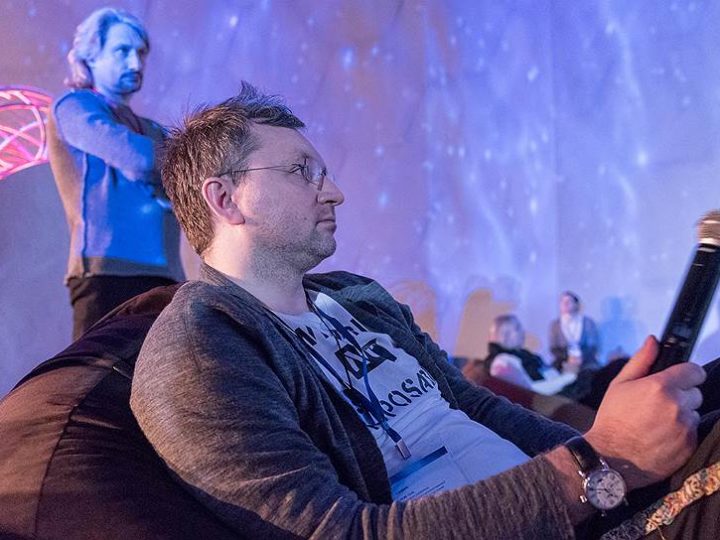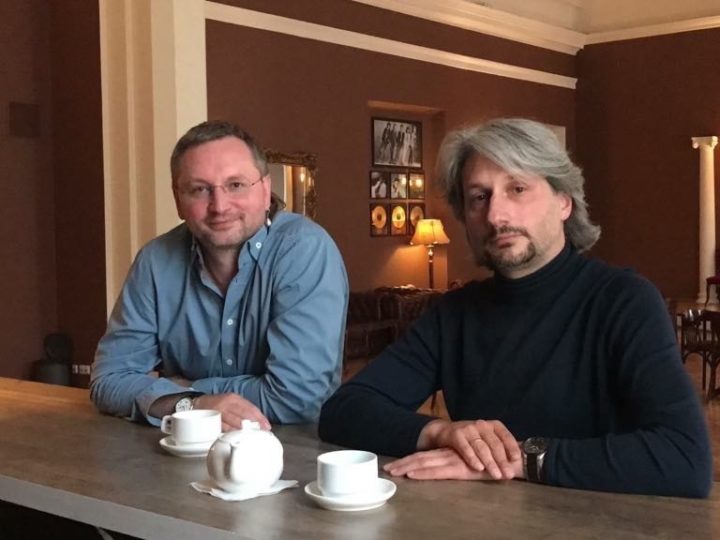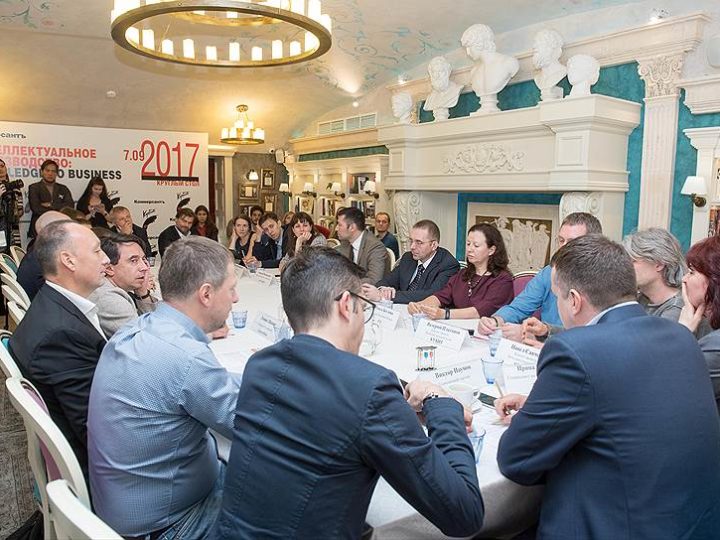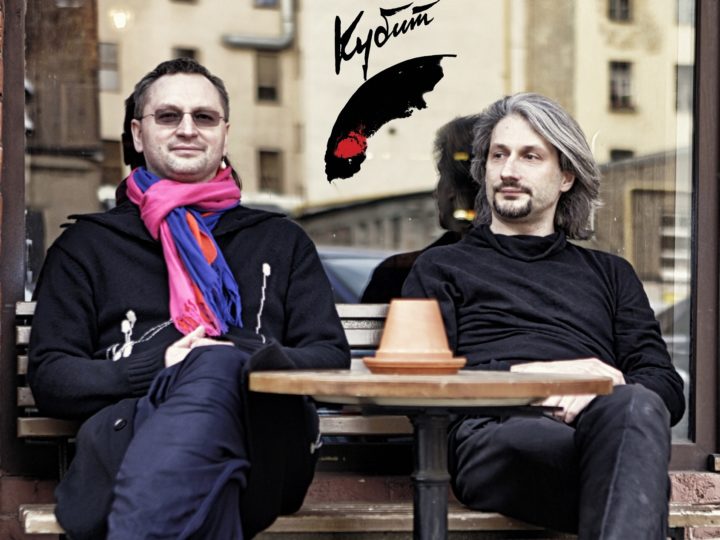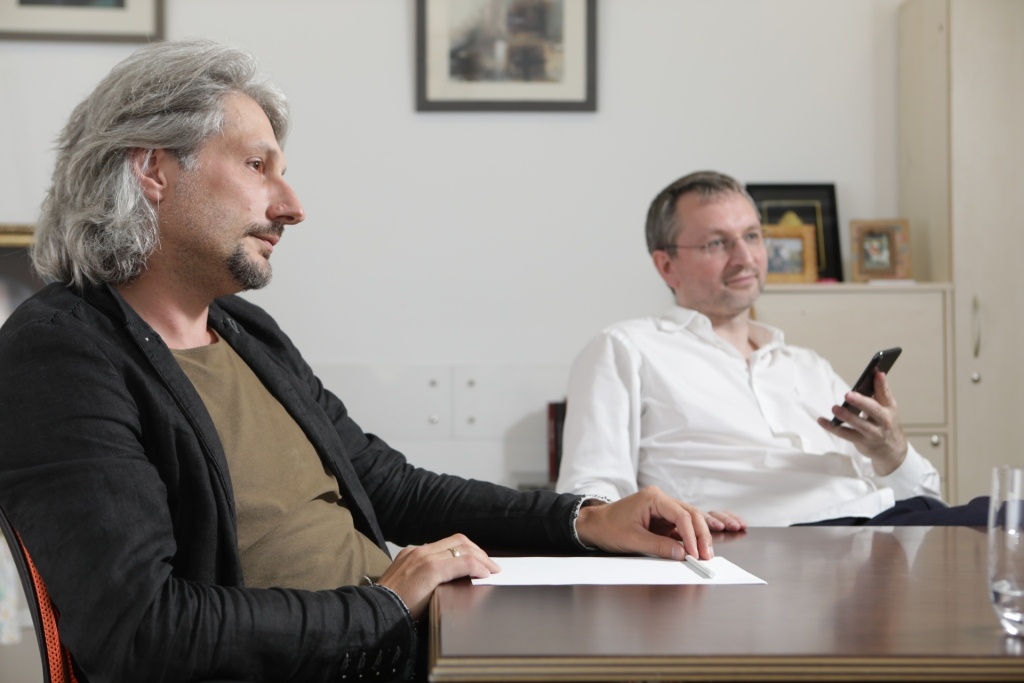
Qubit Business Duet tell about the knowledge stronghold and idea luxury, the quantum world and self-variability, and what a businessman can do with all these.
Our publication has already showed a large Business Duet interview. But still, let us introduce you in few words and within the context of our topic. Who are the intellectual capitalists?
Valery: Intellectual capitalists know how to make money out of the sense. Intellectual capitalists are successful entrepreneurs able to cash on knowledge capital, steadily increase and fairly distribute rents, and gain ground out of complicated matters.
Knowledge is capital which today is becoming a full-value commodity; any product carries unique knowledge, knowledge becomes one of the key factors of production. Knowledge has replaced information and has become the key raw material for economic activity; it is of great value in comparison with other resources. Our abilities can increase it. We accumulate knowledge in-demand which someone is willing to buy, and we sell it to third parties.
Pavel: In addition, our abilities are enough to capitalize our knowledge. A feature of an intellectual capitalist is ability to work with an intangible substance.
Valery: Such knowledge is growing in the market. From the most common, e.g. sales knowledge, to highly-specialized, e.g. law knowledge, accounting knowledge … Each business makes its decision whether to create the necessary knowledge inside itself independently or to buy in another place. Naturally, an enterprise cannot possess one hundred percent expertise in all areas of knowledge required for its development. Some resources shall be attracted from outside. The knowledge economy forms in such a way.
Intellectual capital acts as the key reproducible production factor. The new knowledge-based economy allows knowledge to be converted into income not only in the high-tech industries, but also in the intelligent service sector where knowledge acts as a commodity.
Pavel: And knowledge enterprises appear. For example, Apple seems to produce material products, but first of all they produce intelligent developments. And the product contains knowledge raw materials. Capitalization of knowledge enterprises is proportional to capitalization of material giants. Google has long caught up with and passed General Electric.
This all proves that the basis of capital is not only iron or raw materials, but also what is recorded on paper through words generated by human intellect.

Valery: This is our life and work. We identify the К2В (Knowledge to Business) economy sector. For Russia, this is Terra Incognita. But we find more and more teammates. Let’s put the knowledge category into the harvester of our topic.
Is knowledge rational or irrational?
Valery: This discussion is based on very old information. Only now they eschew the concept of that the right hemisphere of the human brain is responsible for reason, and the left one – for intuition. Only now these obsolete dogmas are demolished publicly. If we rely on relevant anthropological studies, the brain is controlled by an instinct-and-hormonal system similar to animal`s systems, and by our neocortis as a “human” part. These parts are always in a struggle resulted in double “I”. There is understandable, reactive, instinctive-hormonal “I”. There is incomprehensible “I”. To understand it, we turn on our neocortis and spend a huge amount of energy.
Self-perception is very expensive. The body reacts against such costs: why to think if there is a wonderful instinct system accumulating the living world experience. The reaction is simpler than the thought. Indeed, in some aspects of their activity, people choose this option, and there is no need to run rational. Therefore, rational and irrational should be discussed in plane what is better to apply and when.
Here another aspect of the conscious and unconscious appears. This is the work of our brain. The work which never stops. We may think that we made an irrational decision, but we don’t even know what kind of work our brain has done. A famous example of the periodic table which Mendeleev supposedly sew in his dream. But he was working on it for two years.
Pavel: If he had not created the table, he would not have become Head of Department, and had nothing for his family living. That is, his discovery was a consequence of his need in surviving. A real biological problem made the scientist’s brain work for 24 hours a day. Is it really right to blame his dream (his irrational) for everything?
Valery: Another idea we often hear from very successful people is, “If I were a little more stupid, I would be richer.” The point is that the rational is expensive.
Pavel: Everything requiring thinking is expensive. But evolutionarily our brain was formed to solve “expensive” challenges. Unless such ones, it is lazy and does nothing gladly.
Valery: Therefore, we adhere to this definition of thinking. Thinking is the ability to solve standard problems in non-standard ways.
Nevertheless, knowledge, in my opinion, is a pattern of irrational rational. Because it’s a conditionality which is conditionally agreed by the conditional community. But who guarantees that everything is exactly as we know?
Valery: This is an important issue. We identify ourselves as intellectual capitalists because for us something is “solid”. But someone can think that it’s not solid at all, and cannot understand why. In my turn, I have no understanding in something about machines. They are “not solid” for me. And for another person, machines are obvious. It is all about our individual variability in our brain. The ability of our brain to assimilate or not assimilate different information.
The conditional you talked about is the same ability to see or not to see. The evolution has divided us into types – and we can understand the species difference. But we cannot see the “brain” differences. We all three are sitting here, we can see each other, but we cannot see how differently our brains work.
Pavel: Modern science says that it’s the very place to look in to understand who is in front of you.
Valery: If we could peep, we would discover that, for example, we have different musical ears. Someone has perfect, but someone else has so-so. Someone can hear clearly mistakes in musical performance. But someone has no doubt in harmony, because they simply don’t hear the nuances.
Pavel: The paradox is behind this. Those who cannot hear perfectly can have a phenomenal memory which helps perfectly reproduce a piece of music, thanks to which society can confirm their perfect hearing. The mistake will be proved as correct. And you won’t find it if you don’t look into their brain.
Valery: This is the answer to your question about knowledge. Everyone can see in different ways. We believe knowledge is “solid.” Unfortunately, to understand what and how a person cat see, we can only posthumously – pulling out and disassembling the brain. By the way, the 49th cluster was discovered in Mayakovsky’s brain during such a procedure. It`s a unique feature.
VALERY PLATONOV is an intellectual capitalist, an economic innovation expert, a speaker for international forums and conferences. A co-author of the “Management of Intellectual Production” course and of a live lecture “Intellectual Capitalism in Russia”, a co-author of InArt – The Art of Intellectual Business and philosophical trainings “On Ownership” for business owners.

Your title QUBIT comes from quantum physics. And now they are talking about quantum in relation to almost everything: quantum economics, quantum art, quantum physics … Where is the entrepreneur’s place in this even less “solid” place?
Pavel: A qubit can be both zero and one at the same time. And this is a good bridge to our topic. The entrepreneur personal art is their ability to trust rational or irrational at the right time. Or to connect at the right time, connect one and the other to get the result.
Valery: The following is solid about this. People need an explanation of why they live. For a long time, mythology, religion, ideology, science have given answers. However, these answers stopped to satisfy us. They may not contradict our pictures of the world, but they stopped to satisfy. At some point, an idea appeared that people involved in quantum physics are quantum philosophers. And they can give new answers, new justifications for our being.
Now I would suggest concentrating on the fact that there is a serious business problem in this aspect. Because an entrepreneur manages a person like a production tool. And he must explain to the man why the last must work. Explain in the new ways. After all, this question is still insoluble. Why made man work many years ago? Why did he choose labour? From the point of view of nature, he has no such a need…
Yes, man is born, eats, reproduces, passes away. He completes his biological task.
Valery: That`s right.
Pavel: Today, the search for this answer remains no less actual. But modern man needs new answers.
Valery: They produce so many goods today that humanity, in general, may already not work. Some countries sponsor unemployment. We see certain signs in our own country. What is car sharing? It is development of poverty. This means the regressing economy. Do we really need to work if money has already become a problem? When the Keynes bet is below zero, but he did not write what to do in this case. Quantum philosophers are trying to explain the new reality in their answers. If they find solutions to our least satisfaction, it will be easier for entrepreneurs to find their place in the world of quantum economics.
Man needs an explanatory concept.
Valery: Why should we live? The question requires an answer. And there are very few people and institutions that can give an answer. Man is paradoxical in their nature. When they started accepting Mars travel applications, about two hundred thousand earthlings responded. The nuance is that they offered a one way ticket only. Two hundred thousand people are ready to fly into the unknown. And how many people just don’t know about the selection, how many are still potentially ready to find their answers in this way?…
What can an entrepreneur do in these circumstances? What businesses are appropriate in the new world order? What are the rules of work?
Pavel: This is a big, very interesting, separate topic. In short, the future belongs to H2H (Human-to-Human) area. The future lies in personalized services. What business has exchanged for scripts today will come back: lively and sincere communication. Despite the automation continues to show growth, a parallel wave appears to resists depersonalization.
Valery: I also have a short answer. Entrepreneurs need to do the same, but with one change. Without it, your product will cost as much as it costs today. And you will lose margin compared to a product that has something else. This “something” is knowledge. Do the same, but put in the knowledge which will give you extra earning power.
Pavel: It used to be called “know-how.”
Valery: message is this: you should realise how to implement this in your restaurant or shop. How to apply your knowledge.
Pavel: The book itself costs as much as the bookstore asks for it. The book is just an information-carrying medium. But its real value is in knowledge. What you can mine by processing its information. Knowledge costs a lot more. Sometimes they are priceless.
One more thought should be added. Today, small and medium-sized businesses imitate each other totally. Such imitation is irrational behaviour, because at the same time man does not think. This is easier. Thinking and being different is much more difficult. I don’t know if the current statistics have changed, but before the figures said that only 5% of people are able to be entrepreneurs, that is, they have entrepreneurial mindset. Only five percent, but it is a lot in absolute terms in relation to the population. And that’s great, because the entrepreneur afford the luxury of thinking.
PAVEL SAVCHENKO is a practicing top manager, a speaker for international forums and conferences, and a member of the boards of directors of various businesses. A co-author of the “Management of Intellectual Production” course and a live lecture “Intellectual Capitalism in Russia”, a co-author of InArt – The Art of Intellectual Business and philosophical trainings “On Ownership” for business owners.

What mistakes, thinking traps do we discover today in the managerial practice of intellectual business and how can we overcome them?
Pavel: The main trap is when an immediate result is expected. The second one deprives of entrepreneurial freedom due to debts, loans, difficult partnerships. The solutions seem obvious: the more resources you put into what you start up, the longer period of the result expectation.
Valery: People are conservative creatures. For eleven years we study at school in the conservative environment. There we adopt the “student-teacher” model. And further at university and at work we act in the same way: we are looking for our leader. The first trap is our inability to live out the school environment. The second mistake: there are few intellectually fearless people, and society seeks how to suppress them. And they need to be identified, encouraged and properly applied. The third: man often confuses action with control. Being an engineer of knowledge and knowledge managing are different. We have to learn how to separate them. The fourth: our current thinking is related to warranty. We are sure that if we do this, we will get that. Because they are the standards of material thinking: a machine produces a part once an hour. Everything is clear. Do you expect a designer to give the same result? Nobody really can provide guarantees.
Therefore, we have to learn how to live without a magic wand. Of course, we will “catch up” and learn, we need only time. Humanity had lived their life of several thousand years with a horse speed when suddenly there happened a tremendous hop from a horse to a steam engine, and then to a split atom and, finally, today to so called “artificial intellect” (the name, by the way, is wrong). I mean that a tremendous communication breakthrough occurred within the framework of the same generation, whereas before this required millennia and epochs. Just few can adapt to these speeds instantly. The today`s generations have to adapt to each other due to the difference in technologies, not in ideologies. Moreover, they have to do it in the context of uncertainty. We will learn everything, we just need to be patient.
Nevertheless, I will ask the question in old standards: what certain tools can help to organize intellectual labour?
Valery: The scientific management of labour is undeservedly forgotten. You can take a Soviet book on labour management and apply this knowledge today.
Pavel: As for automation, in intellectual production we call this the “workbench of the expert” identifying the entire combination of hardware and software to remove routine and give freedom to a person engaged in intellectual labour.
SUMMARY
- Everything bumps into our individual variability in our brain. The ability of our brain to assimilate or not assimilate different information.
- The entrepreneur’s personal art is his ability to trust rational or irrational at the right time. Or to connect one and the other.
- Modern man needs new answers to the question “Why to work?”
- There are few intellectual fearless people, they need to be identified, encouraged and properly applied.
- Use the scientific labour management and the “workbench of the expert” (a combination of hardware and software to remove routine).
Interview: Svetlana Morozova
Photo: Yuri Tsoi
Published in the Man of Business journal No. 8 (26), July 2019

